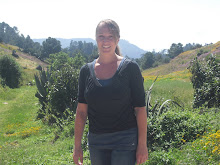
Oaxaca Street Children, Grassroots, is a nonprofit organization dedicated to helping very poor children in Oaxaca to pursue education. They have a variety of programs, including a drop-in center that provides meals, tutoring, classes, a computer lab, and a library. Their other major program is a sponsorship program that matches largely foreign sponsors with a child in need; sponsors pay between $150 to $250 per year to cover the educational costs of the child, including tuition, supplies, and uniforms.
I started volunteering with the program because there is a tremendous amount of poverty in Oaxaca. Oaxaca is Mexico’s third poorest state. Many children sell trinkets or beg on the streets until late night out of financial necessity. I was happy to find an organization that helps.
Initially, I also thought that volunteering in a nonprofit would be a good way to get to learn about different perspectives about the legal reforms in the state. I recently started thinking about what restorative justice has to do with the work of the organization. On the surface, not much. The organization does not work with crime victims or offenders specifically. It is an organization dedicated to providing for the basic needs of children and families.
However, most of the children who participate in the program are from indigenous communities. Oaxaca is home to more indigenous residents than any other state in Mexico. There are many communities where people speak their traditional languages and live according to their particular ethnic group’s ancient customs. Over 16 indigenous languages are spoken throughout the state.
Indigenous people in Mexico have historically been discriminated against, and they tend to be the poorest of the poor throughout the state. The discrimination has been intense; in Chiapas, indigenous people could not walk on the sidewalks until recently. They have also lost much of their land, which is their means of survival. NAFTA, for example, has resulted in many subsistence farmers being unable to continue to make a living due to increased competition from large corporations who sell at a greater volume for lower prices.
In a small way, a program aimed at providing for the needs of indigenous children is an attempt to repair some of the harm that has been done. There are, of course, many other restorative justice-based efforts that could and should be made in this area. But viewed in this context, the program has some restorative characteristics. They rely on volunteers for many of their programs, and they are always happy to have new volunteers. If you are in Oaxaca, it is definitely worth stopping by.



No comments:
Post a Comment